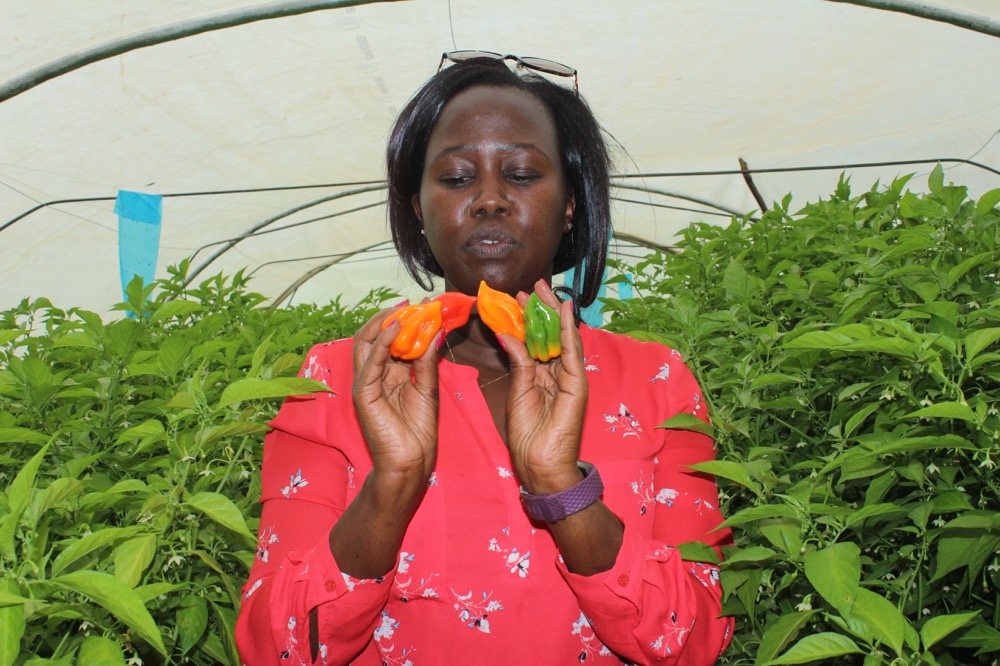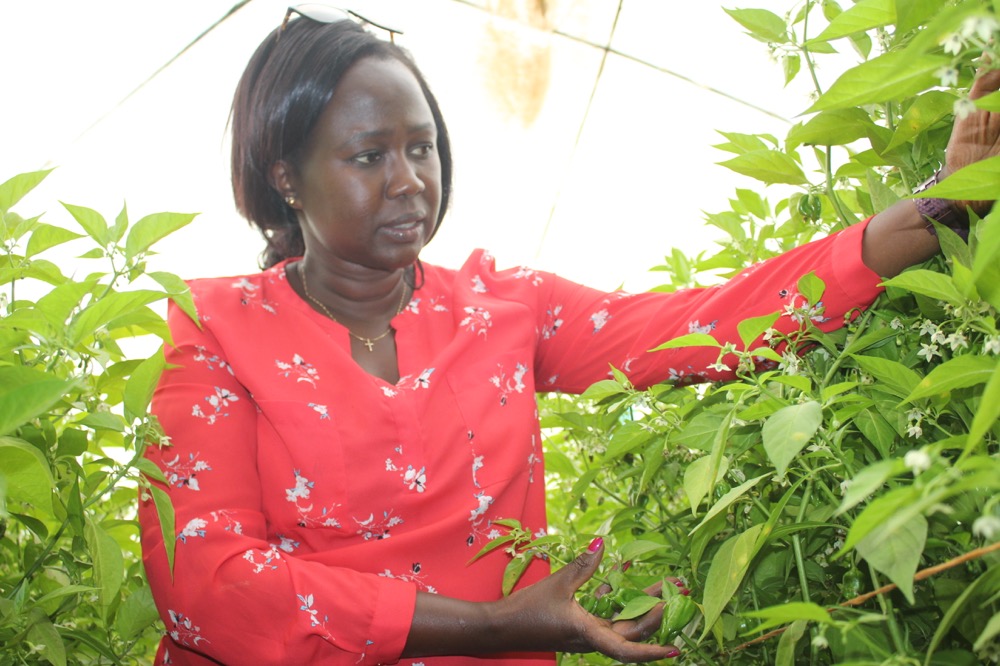MARKUP Kenya to Support Chilli Value Chain

At Seko Farm in Uasin Gishu County, are 4000 plants of Habanero and demon F1 chilies varieties. Demon F1 resembles as bullet chilies but it is robust while Habenero looks like capsicum but this one is considered as one of the hottest chilies in the world and is preferred in the export market.
Norah Jeruto Cheserem, the farm owner, developed interest in chilies last year when she visited a farmer at Kitengela in Nairobi who grows herbs and chilies. The visit, she says, motivated her to venture into this farming.
From one greenhouse, she harvests between 50 kilogrammes and 100 kilogramme of the chilies. She sells the Demon F1 at Sh80 and Sh100 per kilogramme while Habernero fetches higher prices with a kilogrmame retailing between Sh120 and Sh150 per.
Eyeing the Export Market
Currently she is selling in local market especially retail shops, hotels and restaurants, as she eyes the more lucrative export market.
“There is huge demand in the European Union (EU) market or northern hemisphere especially cities like London with huge Asian-Indian population and demand goes up during colder months. We are also targeting the West Africa market such as Ghana and Nigeria that is high consumers of chilies.
She says that she is also looking at the option of adding value by making sauce, and other products with a longer shelf-life.

Managing Pests Infestation
She says that some of the challenges, she encounters include some pests such codling moth or aphids that attack the crop. And to tackle them, she decided place traps inside the greenhouse.
“We have managed to reduce these pests and ensure quality for both local and export market. I am also growing the garlic, marigold and rosemary to help control some of these pests,” notes the young farmer.
Word to Young Farmers
Her advice to other young farmers: We need to look at the resources in my hand. Never feel you are alone, you can step out of your job and give a try in farming. You won’t regret.
Chilies are among eight varieties of horticultural produce which are targeted for support through the EU- funded Market Access Upgrade Program (MARKUP) Kenya.
“The project will especially focus on empowering the youth and women, as they are key pillars to the economy,” says Maina Karuiru, MARKUP Kenya’s National Coordinator.
He adds that farmers and other stakeholders along the value chains will be trained on best production, handling and marketing skills.
This way, their produce will sell competitively locally, regionally and internationally.
Implemented by United Nations Industrial Development Organisation (UNIDO) in partnership with the government and private sector, the project is implemented in 12 counties.
Besides chilies, it also focuses on macadamia, groundnuts, French beans, snow peas, passion fruits, herbs and spices.
